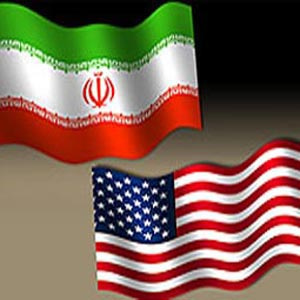A Change of Strategy

Obama’s recent decision refuted those political perceptions that no matter who comes to power  in the United States, macro-policies will not change. There are a number of observers who believe in the existence of a decision-making locus in the United States for which the presidents are mere puppets. U.S. president’s latest decision however showed the inaccuracy of this argument and revealed the differences between a Democrat like Barack Obama with neo-cons (for whom the installation of missile defense shield in Eastern Europe was a key objectives.)
in the United States, macro-policies will not change. There are a number of observers who believe in the existence of a decision-making locus in the United States for which the presidents are mere puppets. U.S. president’s latest decision however showed the inaccuracy of this argument and revealed the differences between a Democrat like Barack Obama with neo-cons (for whom the installation of missile defense shield in Eastern Europe was a key objectives.)
Another point: with a new international situation emerging after the economic crisis, the conditions are ripe for a merger and move towards a multilateral order. The world will no more be subject to the decisions of a single power. Countries have interconnected interests and performance and many decisions are going to be collective in nature.
These two developments may encourage the United States to change its strategy. Pressure, military threat and defense umbrellas may not be the primary response to a problem anymore. In today’s world other solutions are also possible.
True it is that Iran’s military and nuclear projects urged the U.S. to deploy a missile defense shield, but there are no doubts that Russia sensed threat from this plan. United States has come to the conclusion that not only the shield cannot effectively pressurize Iran and Russia, but also it further encourages these countries to develop stronger cooperation. Russia may decide to provide an opportunity for Tehran to play an active regional and international role.
The U.S. turn appears to be an attempt for encouraging Russia to participate with West in making international decisions. Cases such as cooperation with NATO, energy policies and solving problems in Afghanistan which lies at the center of United States new strategy will be subjects of this partnership.
Conversely, further cooperation between Russia and the United States will put more fetters on Iran, since Russia will be deprived of the chance of supporting for Iran in its face-off against the United States. Missile defense shield was always a bone of contention between Russia and the United States and a stop to the project has been one of Russia’s conditions to stop backing for Iran.
Therefore, a more unanimous international response to Iran’s nuclear program is expected with the United States’ new decision. If Iran modifies its stance and changes its position in the negotiations, the international community may show a collectively positive reaction to Iran. The opposite is also plausible, i.e. stronger cooperation among China, Russia and West to exert pressure on Iran.
Meanwhile, let’s not forget that there is a complementary strategy to the missile defense shield. From the beginning, Democrats believed that a shield installed in Poland and the Czech Republic could not be effective in case of Iran’s possible attack. They advocated a missile shield deployed in Iran’s neighboring countries, one which could neutralize Iran’s missile or nuclear capability even if it achieved advanced weapons. The efficacy of both these plans is a matter of question; however, U.S. is continuously seeking alternatives in order to offset Iran’s military power.

